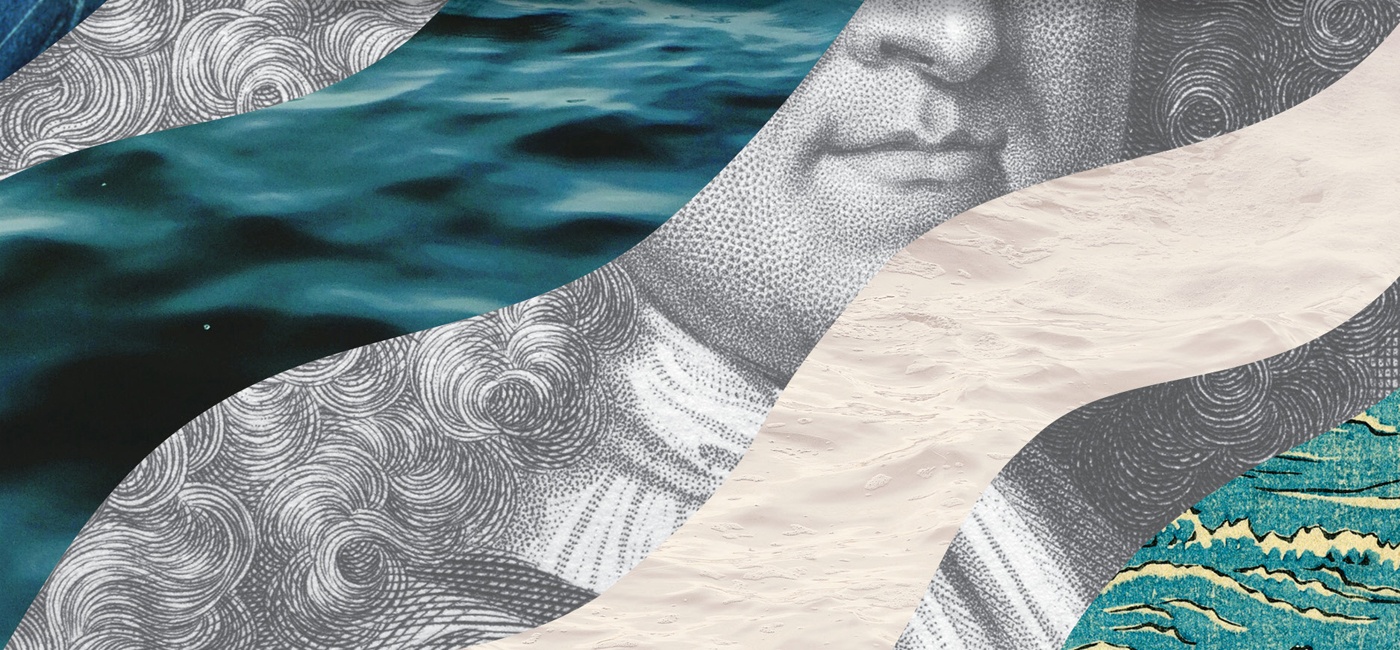
______
2016
The ancient mariner got up at dawn in order to drink the dew from the hibiscus flowers that grew in what he called the lee of his house. The sky was a dusty pink and the yard was still dark. I saw him through the gauzy walls of my tent. I heard him singing.
“We have to film you doing this one morning,” I said. “Drinking your nectar or whatever it is. It’s a significant detail.”
He was wearing wide sailcloth trousers, no shirt, no shoes. He had a white beard and long white hair and he was bald on the crown of his head. He was still sinewy and strong but he had shrunk so much that in certain positions his rib cage brushed against his pelvis.
“This morning I want to explain to you about pig toilets,” he said. “They were an important feature of life in Goa. The latrine was built over a pigsty. Actually that’s all there is to say about pig toilets.”
“Pig toilets.”
“And the answer is yes. They did eat the pigs.”
He called it the lee of his house not because it was the habit of an old seafaring man to refer to everything in nautical terms, but because his house was a boat. He’d been anchored out in the lagoon, he said, just inside the reef, and then an enormous end-of-the-world storm blew up and carried the boat half a mile inland. So providential was his deliverance that he’d felt it was only proper to carry on living in the wreck. Over the years he’d replaced all the original wood, he’d opened windows in the hull, he’d burned the masts for firewood, but he hadn’t altered its shape. It looked like what it was. It was a Bermuda sloop run aground.
“Another thing about Goa,” he said. “There was a plant that bore as its fruit a tiny lamb, perfect in every detail except that it had no teeth or hooves or eyes. The animal grew inside a seedpod on a long stem that attached just below its shoulders. It would graze and keep the area clear of weeds. The meat was edible, it tasted like crab, and the blood was sweet like honey. You wonder why this plant was never exploited commercially, this meat- and wool-bearing plant, but I think maybe it was condemned by the Inquisition.”
Azar and I had come to Key West to film a documentary about him, but neither of us had any experience with filmmaking or, more significantly, any special interest in filmmaking. I’d written the ancient mariner a letter to suggest the project after I saw an article about him in the Travel section of the New York Times, but from the beginning I was only looking for some pretext to leave New York. I hadn’t expected an answer, and I hadn’t expected Azar, a friend since college days, a listless and detached young person like myself, to insist on coming. I certainly hadn’t expected to be here, sleeping in the yard and fumbling with an expensive little video camera.
And there was something more: The ancient mariner had agreed to participate in the documentary on the condition that we help him with some digging. He would not say more than “some digging.”
“We used to drink feni,” he said, “which was made from fermented cashew fruit, and we’d wander around the old city, and the moon was huge and red, and the air smelled like pepper, and we’d pet the little eyeless hoofless toothless lambs and feel ourselves very far from home.”
He told us that he was something like five hundred and sixty years old. He told us that his name was Daniel Defoe. He told us that for most of his life he had been searching for a woman named Anna Gloria, whom he had seen in Spain as a young man and had vowed to marry. I could not understand whether he believed these things himself or whether he was making fun of us. He had cautioned us several times against revealing our true names so freely. A name was something to conjure with.
And now he had to scramble up the rope ladder to the deck and speak his prayers. I sat down at the little wooden table in the yard and put my head in my hands. Key West, the middle of May, seven o’clock in the morning, seventy-five degrees. I was not hungover. I was not unhappy. I’d been a graduate student for a little while, but it didn’t take, and then I’d worked for an environmental advocacy group in New York, but that didn’t take either, and now I’d given up my apartment and left my job and I was nothing. I was staying with Azar and telling people I was on sabbatical. I was trying not to be so gloomy all the time. I was twenty-seven.

